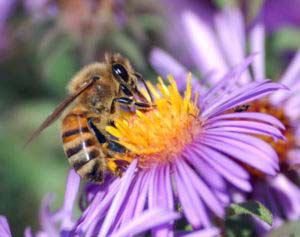“It's worse than last year, and last year was worse than the year before. So, it's bad. And there are a lot of good, big beekeepers that are having a lot of problems. I think we're coming in for a big train wreck.”
- Gilly Sherman, Beekeeper

April 10, 2008 Gainesville, Florida - On April 5, 2008, England's BBC News carried a report entitled, “U. S. Fears Over Honey Bee Collapse.” A California beekeeper, Gilly Sherman, was interviewed and he said sobering words: “It's worse than last year, and last year was worse than the year before. So, it's bad. And there are a lot of good, big beekeepers that are having a lot of problems. I think we're coming in for a big train wreck.”
I took that quote to Jerry Hayes, Chief, Apiary Section, Florida Department of Agriculture, and President of the Apiary Inspectors of America in Gainesville, Florida and asked for his comment.
Click here to subscribe and get instant access to read this report.
Click here to check your existing subscription status.
Existing members, login below:
© 1998 - 2025 by Linda Moulton Howe.
All Rights Reserved.

